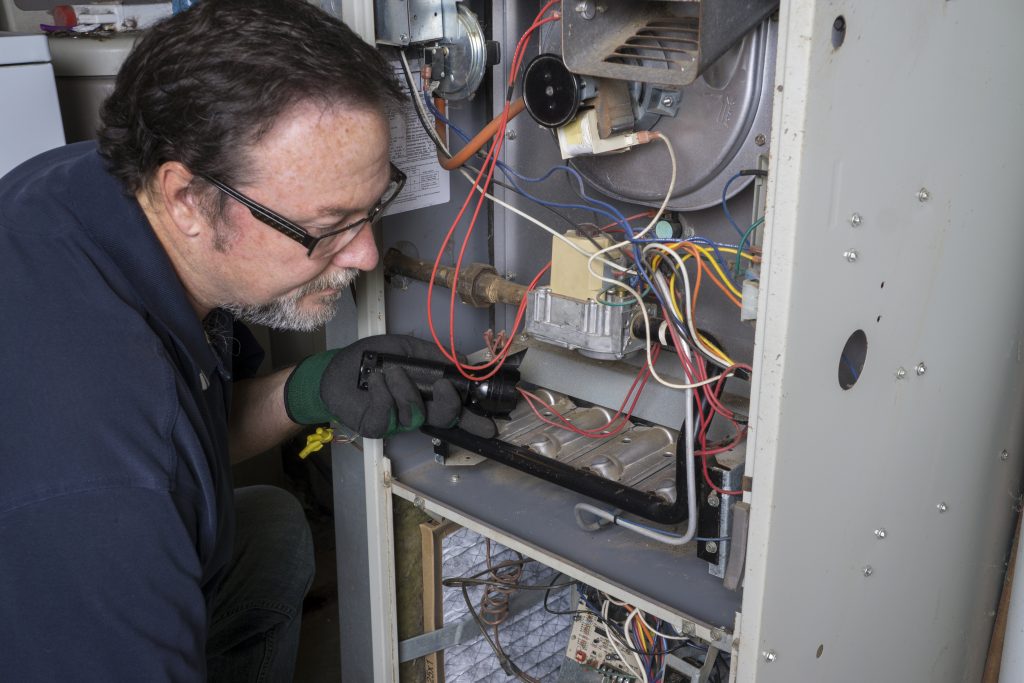You can’t wait to contact HVAC technicians when heating, ventilation, and air conditioning infrastructure in your home malfunction. The thought of extreme temperatures, poor air quality, and increased humidity can be stressful. And without HVAC technicians, life would be unbearable during extreme weather conditions.
For someone who is looking to join the technical field, “HVAC technician career pros and cons” are among the first queries that they want to be answered. An HVAC career has been widely recommended. Most people who want to join the field need to learn about HVAC career pros and cons before making that move.
Let’s talk about the pros and cons of working in an HVAC career.
What are the pros of an HVAC career?
- HVAC technicians earn a fair wage
Wage is an area of concern in all careers. No one wants to spend their life building a career that cannot even pay bills. While the remuneration of HVAC technicians depends on various factors such as the expertise level, location, and employer, the average salary for an HVAC technician in the United States is $53,784 along with other benefits including healthcare insurance and vacation time. And once technicians surpass 5 years in their HVAC careers, the wage increases significantly, with the highest earners making up to $93,000.
- HVAC technicians get to work in a variety of settings
If you like to explore, you will love an HVAC career. HVAC technicians get to choose between commercial, residential, and even industrial providers. However, expertise level also comes into play here. HVAC technicians can also choose to work in the public sector. Common paths for HVAC technicians include working for heating and cooling contractors, HVAC sales, gas technician, commercial establishments such as restaurants and grocery stores and even working in sheet metal.
- Excellent job prospects
The HVAC industry is estimated to have over 20% job growth over the next ten years. This is great for experienced, new technicians as well as those wishing to join the industry. The estimated increase in job opportunities can be attributed to the influx of new technologies and buildings.
- HVAC trainees get to earn as they learn on the job
Once HVAC technicians complete their training program, they receive extensive training as entry-level employees. During this time, they earn approximately half of what fully trained technicians make.
- HVAC technicians can work and live anywhere
HVAC facilities are widely used around the world. And to keep the systems running, HVAC technicians have to undertake maintenance, troubleshoot, and repair faulty systems. This means that technicians can work just about anywhere.
- HVAC technicians are not threatened by automation or outsourcing
It is normal to worry about starting a career only for it to die down. Many sectors now face the risk of being rendered useless especially due to automation and outsourcing. HVAC careers cannot be threatened by this. Despite future technological innovations, HVAC technicians will always be required to guide customers, install and service ventilation, cooling, and heating systems. Technology will, however, continue to optimize these systems.
- Excellent benefits
In addition to earning decent pay, HVAC technicians also get additional employment benefits. For instance, technicians have health insurance benefits and even auto insurance. And if you plan your HVAC career well, you can enjoy a comfortable retirement since most of the jobs offer competitive pension plans.
What are the cons of an HVAC career?
Here are some cons to consider, when thinking of HVAC career pros and cons:
- HVAC technicians are forced to constantly improve their skills
Just like any other job field, HVAC technicians must constantly improve their skills to remain relevant. This comes with the creation of new energy-efficient technologies that ensure cooling and heating systems continue to evolve. As such, HVAC technicians must upskill through educational opportunities. And this is an added cost. However, the more an employee advances their skills, the better the remuneration.
- HVAC technicians can be called in to work any time
The nature of HVAC jobs is that systems can malfunction at any time, even after hours. And customers need them solved to maintain comfort and even prevent dangers. Because of this, HVAC technicians should be ready to receive calls to report to a certain site or the office at any time. However, most of their days are typically 9-5.
- It can take time to complete HVAC training
While it is easy to start an HVAC career, it takes time to earn your degree, licensing, and certification. Most people opt to start with a certificate program at a local community college and join the entry-level laborer positions. It takes lots of time and effort for employees to develop enough expertise to maximize their wages. Also, it is difficult for technicians to get their first job without experience. This leaves entry-level technicians with no option but to use apprenticeship opportunities and gradually upscale their career.
- The HVAC sector is marred by occasional safety hazards
Working in the HVAC sector involves some risk of bodily harm. HVAC technicians are more likely to suffer on the job since they often work with heavy equipment and are subjected to extreme temperatures and hazardous materials. Different certifications can make a technician more employable since they signify competence in working with different machinery, which helps reduce injuries. For instance, technicians who work with refrigerators are required to pass the Environmental Protection Agency test. While such certifications make work environments safer, they do not eradicate workplace accidents. These certifications can be expensive and most technicians pay for them out of pocket.
- HVAC careers are physically demanding
If you choose an HVAC career, expect to be on your feet most of the item. You may also find yourself in tight spots such as crawl spaces and attics. As such, you need to stay in shape and always wear protective clothing to prevent injuries.
Bottomline
Based on the above pros and cons of HVAC career, it is clear that the occupation is quite rewarding. However, as with any career, there are ups and downs that you will encounter. These should not deter you from starting your HVAC education and even advancing your career.
The article was written in collaboration with Build Media Group.




